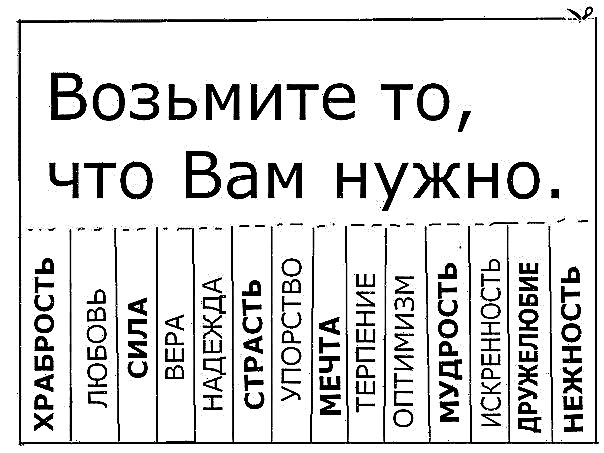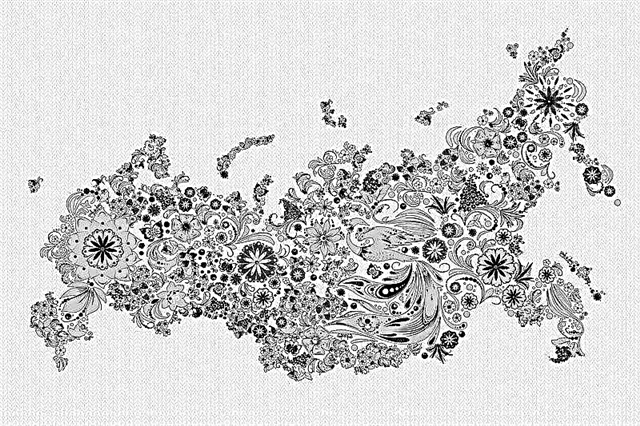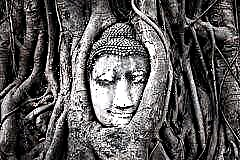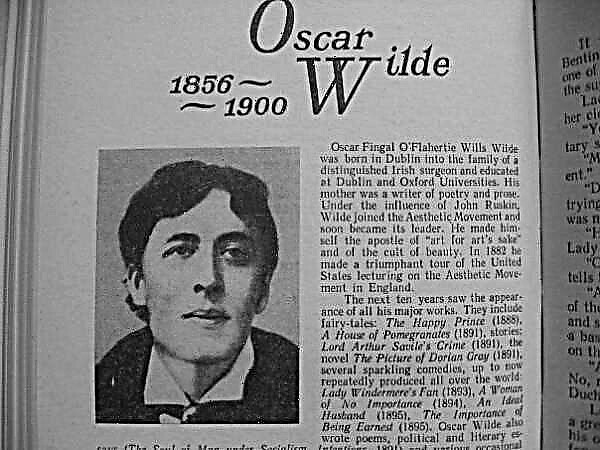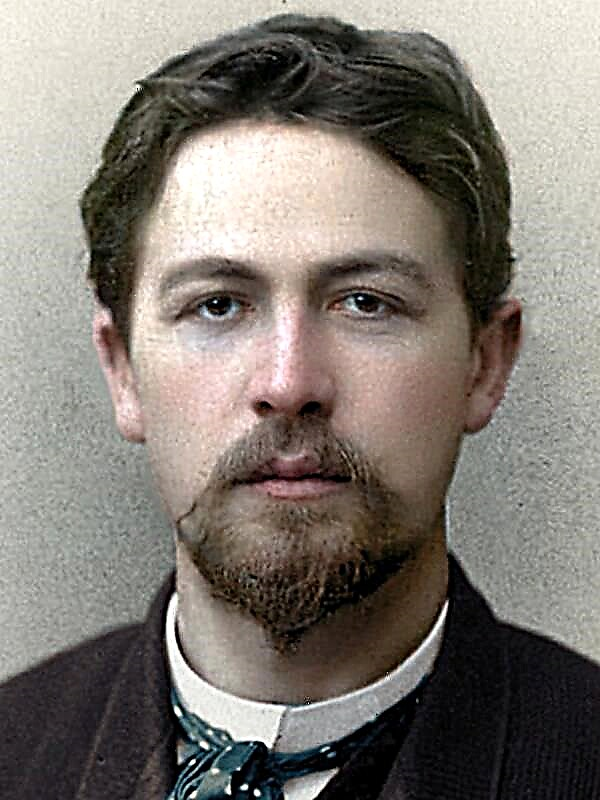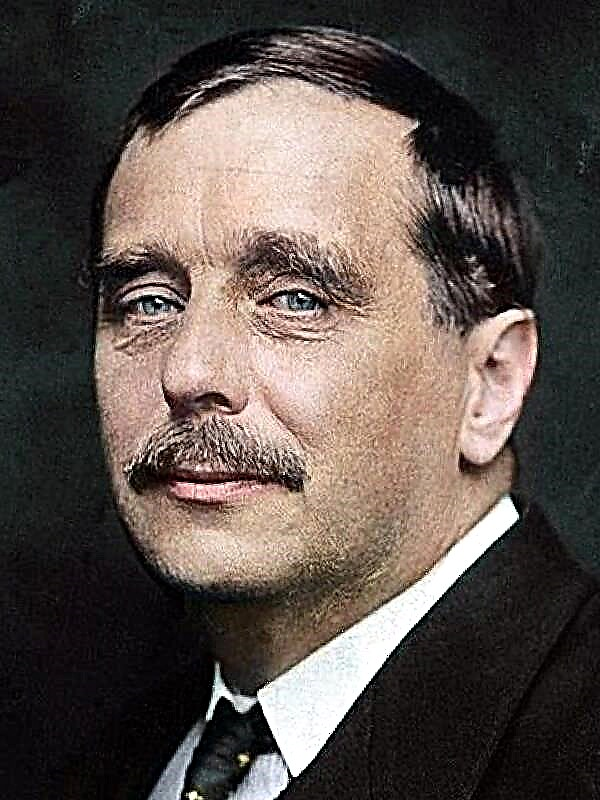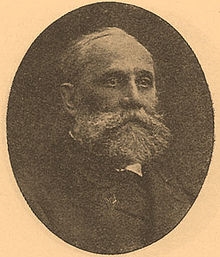Herzen’s book begins with the stories of his nanny about the ordeals of the Herzen family in Moscow in 1812, occupied by the French (A. I. himself was a small child then); ends with European impressions of 1865 - 1868 Actually, memories in the exact sense of the word "Past and Thoughts" cannot be called: a consistent narrative seems to be found only in the first five parts of eight (before moving to London in 1852); further - a series of essays, journalistic articles arranged, however, in chronological order. Some chapters of “Past and Thoughts” were originally published as independent things (“Western Arabesques”, “Robert Owen”). Herzen himself compared the "Past and Thoughts" with a house that is constantly being completed: with "a set of extensions, superstructures, outbuildings."
Part one - “Children’s and University (1812 - 1834)” - describes mainly life in the father’s house - a smart hypochondriac who seems to his son (like his uncle, like his father’s youth friends - for example, O. A. Zherebtsov) a typical product of the XVIII century .
The events of December 14, 1825 had an extraordinary effect on the boy’s imagination. In 1827, Herzen met his distant relative N. Ogarev - a future poet, very beloved by Russian readers in the 1840s and 1860s; Together with him, Herzen will then run a Russian printing house in London. Both boys are very fond of Schiller; among other things, it quickly brings them together; the boys look at their friendship as an alliance of political conspirators, and one evening on the Sparrow Hills, "hugging, swore, in view of the whole of Moscow, to sacrifice <...> life for the chosen <...> struggle". Herzen continues to preach his radical political views and growing up as a student of the physics and mathematics department of Moscow University.
Part two - “Prison and exile” (1834 - 1838) “: in a trumped-up case about insulting his majesty Herzen, Ogarev and others from their university circle were arrested and exiled; Herzen in Vyatka serves in the office of the provincial government, is responsible for the statistical department; in the corresponding chapters of the Past and Doom, a whole collection of sad and anecdotal cases from the history of the administration of the province is collected.
Here, A. L. Vitberg, whom Herzen met in exile, and his talented and fantastic project of the temple in memory of 1812 on the Sparrow Hills, is very expressively described.
In 1838, Herzen was transferred to Vladimir.
Part three - “Vladimir-on-Klyazma” (1838 - 1839) “- a romantic love story of Herzen and Natalya Alexandrovna Zakharyina, the illegal daughter of Uncle Herzen, brought up by a half-crazy and evil aunt. Relatives do not consent to their marriage; In 1838, Herzen arrived in Moscow, where he was forbidden to enter, took the bride away and was married secretly.
In part four - “Moscow, Petersburg and Novgorod” (1840 - 1847) “describes the Moscow intellectual atmosphere of the era. Herzen and Ogarev who returned from exile became close friends with the young Hegelians - Stankevich’s circle (first of all, Belinsky and Bakunin). In the chapter “Not Ours” (about Khomyakov, Kireevsky, K. Aksakov, Chaadaev), Herzen speaks primarily about what brought Westerners and Slavophiles closer together in the 1940s. (the following are explanations why Slavophilism cannot be confused with official nationalism, and discussions about the Russian community and socialism).
In 1846, for ideological reasons, Ogarev and Herzen were estranged from many, primarily from Granovsky (a personal quarrel between Granovsky and Herzen because one believed and the other did not believe in the immortality of the soul is a very characteristic feature of the era) ; after that, Herzen decides to leave Russia.
Part five ("Paris - Italy - Paris (1847 - 1852): Before and After the Revolution") tells of the first years Herzen spent in Europe: the first day of a Russian who finally found himself in Paris, a city where much of what he created at home he read with such greed: “So, I'm really in Paris, not in a dream, but in reality: after all, this is the Vendome column and rue de la Paix”; about the national liberation movement in Rome, about “Young Italy”, about the February revolution of 1848 in France (all this is described quite briefly: Herzen refers the reader to his “Letters from France and Italy”), about emigration to Paris - mainly Polish , with its mystical messianic, Catholic pathos (by the way, about Mickiewicz), about the June days, about her flight to Switzerland and so on.
Already in the fifth part, a consistent presentation of events is interrupted by independent essays and articles. In the West Arabesque sideshow, Herzen - clearly impressed by the regime of Napoleon III - speaks in despair of the death of Western civilization, so dear to every Russian socialist or liberal. Europe is destroyed by the philistinism that has taken over everything with its cult of material well-being: the soul is waning. (This topic becomes the leitmotif of “Past and Thoughts”: see, for example: chapter “John-Stuart Mill and his book“ On Liberty ”in the sixth part.) Herzen sees the only way out in the idea of a social state.
In chapters about Proudhon, Herzen writes about the impressions of acquaintance (unexpected softness of Proudhon in personal communication), and about his book "On justice in the church and in revolution." Herzen does not agree with Proudhon, who sacrifices the human person to the “inhuman God” of a just state; Herzen constantly argues with such models of the social state — among the ideologists of the revolution of 1891 such as Ba-bef or among the Russian sixties — bringing such revolutionaries closer to Arakcheev (see, for example, chapter “Robert Owen” in part six).
Particularly unacceptable for Herzen is the attitude of Proudhon to a woman — the possessive attitude of the French peasant; about such difficult and painful things as treason and jealousy, Proudhon judges too primitively. In Herzen's tone, it is clear that this topic is close and painful for him.
The fifth part is completed by the dramatic history of the Herzen family in the last years of Natalya Alexandrovna’s life: this part of “Past and Thoughts” was published many years after the death of the persons described in it.
The June events of 1848 in Paris (the bloody defeat of the uprising and the accession of Napoleon III), and then the serious illness of the little daughter fatally affected the impressionable Natalya Alexandrovna, who was generally prone to bouts of depression. Her nerves are tense, and, as one can understand from Herzen’s restrained story, she enters into too close a relationship with Herweg (a famous German poet and socialist, then Herzen’s closest friend), touched by complaints of the loneliness of his incomprehensible soul. Natalya Alexandrovna continues to love her husband, the current state of things torments her, and she, finally understanding the necessity of choice, speaks with her husband; Herzen expresses readiness to divorce, if there is her will; but Natalya Alexandrovna stays with her husband and breaks with Herweg. (Here Herzen in satirical colors depicts the family life of Herweg, his wife Emma is the daughter of a banker whom she married because of her money, an enthusiastic German, obsessively taking care of her husband, who was genuinely in her opinion. Emma allegedly demanded that Herzen sacrifice his family happiness for Herweg’s peace.)
After the reconciliation of Herzena, they spend several happy months in Italy. In 1851, Herzen's mother and Kolya's little son die in a shipwreck. Meanwhile, Herweg, not wanting to reconcile himself to his defeat, persecutes Herzenov with complaints, threatens to kill them or commit suicide, and, finally, notifies common acquaintances of what happened. Friends stand up for Herzen; unpleasant scenes followed, recalling old monetary debts, assault, publications in periodicals, etc. Natalya Aleksandrovna cannot bear all this and dies in 1852 after another birth (apparently from consumption).
The fifth part ends with the section “Russian Shadows” - essays on Russian emigrants with whom Herzen then spoke a lot. NI Sazonov, Herzen’s university friend, wandered around Europe a lot and somewhat stupidly, carried away with political projects until he didn’t put Belinsky’s too “literary” activities, for example, for Herzen this Sazonov is a type of then-Russian man, ruined the "abyss of forces", not claimed by Russia. And here, recalling her peers, Herzen, in the face of an arrogant new generation - the “sixties” - “requires recognition and justice” for these people who “sacrificed everything, <...> what traditional life offered them, <...> because of their convictions <...> Such people can’t just be archived ... ” A. Engelson for Herzen is a man of the Petrashevsky generation with his characteristic “painful break”, “immense pride” that developed under the influence of “crappy and small” people, who then constituted the majority, with a “passion of self-observation, self-investigation, self-accusation” - and moreover, with deplorable sterility and inability to work hard, irritability and even cruelty.
Part six. After the death of his wife, Herzen moves to England: after Herweg made Herzen’s family drama rumor, Herzen needed the arbitration court of European democracy to understand his relationship with Herweg and recognize Herzen’s rightness. But Herzen found reassurance not in such a “court” (he wasn’t there), but in his work: he “took up <...> for the Past and Thoughts and for the arrangement of the Russian printing house.”
The author writes about the beneficial loneliness in his then life in London ("wandering alone around London, along its stone cuttings, <...> sometimes not seeing a single step forward from a continuous opal fog and jostling with some running shadows, I lived a lot" ); it was loneliness among the crowd: England, proud of its “right of refuge”, was then filled with emigrants; they are mainly described in part six (“England (1852 - 1864)”).
From the leaders of the European socialist and national liberation movement, with whom Herzen was familiar, some are close (chap. "Mountain Peaks" - about Mazzini, Ledru-Rollin, Kossout and others; chap. "Camicia rossa" on how England hosted Garibaldi - about the nationwide enthusiasm and intrigues of the government, who did not want to quarrel with France) - to spies, criminals, asking for a allowance under the guise of political exiles (chapter "London Freedom of the Fifties"). Convinced of the existence of a national character, Herzen devotes individual essays to emigration of different nationalities (Polish Emigrants, Germans in Emigration (see here, in particular, the characterization of Marx and the Marxids - the “sulfur gang”; Herzen considered them to be very dishonorable capable of anything to destroy a political rival; Marx paid Herzen the same.) Herzen was especially curious to observe how national characters manifest themselves in a clash with each other (see the humorous description of how the case of the French duelists was considered in an English court - ch. " Two processes ”).
Part seven devoted to the actual Russian emigration (see, for example, separate essays about M. Bakunin and V. Pecherin), the history of the free Russian printing house and The Bell (1858 - 1862). The author begins by describing the unexpected visit of a colonel, a man who, apparently, is ignorant and completely illiberal, but considers it a duty to come to Herzen as a boss: "I immediately felt like a general." First Chap. - “Apogee and perigee”: the “Bell” is very popular and influential in Russia after the well-known Moscow fires and especially after Herzen dared to print support the Poles during their uprising of 1862.
Part eight (1865 - 1868) does not have a name and a common theme (not without reason its first chapter is “Without Communication”); Here are described the impressions that made on the author in the late 60s. different countries of Europe, and Herzen still sees Europe as the kingdom of the dead (see the chapter on Venice and the “prophets” - “Daniels”, denouncing imperial France, among other things, about P. Leroux); not without reason a whole chapter - “From the Other World” - is devoted to old people, once successful and famous people. Switzerland seems to be the only place in Europe where you can still live.
The Past and Thoughts is completed by Old Letters (texts of letters to Herzen from N. Polevoy, Belinsky, Granovsky, Chaadayev, Proudhon, Carlyle). In the preface to them, Herzen contrasts the letters - the “book”: in the letters the past “does not crush with all force, as it does in the book. The random contents of letters, their easy ease, their everyday worries bring us closer to the writer. ” So understood letters are similar to the whole book of Herzen’s memoirs, where, along with his judgments about European civilization, he tried to preserve the very “casual” and “everyday” ones. As stated in chapter XXIV. the fifth part, "what, in general, are letters, if not notes about a short time?"

